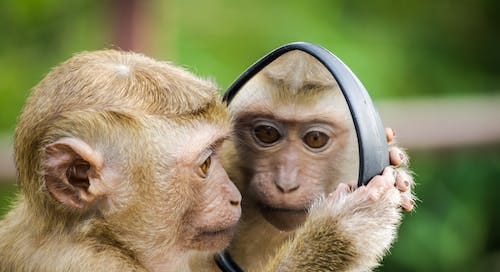It's Time to Retire the "Phobic" Label
Hyperbolic accusations against those who disagree cuts off dialogue and highlights the narcissism of the accuser
by Rebekah Wanic
Language evolves over time. Terms are invented and enter the mainstream lexicon. Meaning evolves. Some words get labeled as offensive or become obsolete and fall out of use. These updates are useful and for 2023, it is time we let the “phobic” label go. It has lost utility, having been usurped by woke narcissists to characterize everything that they collectively or individually disagree with.
Labeling someone else as phobic is currently one of the surest signs you are a narcissist - that you cannot tolerate a world where others might disagree with your perspective or fail to appreciate every aspect of who you are. Popularized by the trans lobby to bully opponents or critics of policy changes such as letting natal men compete in women’s sports or use women-only spaces, the success of this technique in silencing opposition then spread.
However, like most ideas usurped by intellectually stunted narcissists, it has been overused to the point of vapidity. Currently, criticism of almost anything has been labeled as phobic by someone. Going to the gym with the goal of losing weight is fatphobic. When Bros bombed, rather than reflect that perhaps it was a not a good movie, writer and star Billy Eichner blamed the audience, suggesting that Americans who didn’t see the film were “homophobic weirdos.”
The woke narcissist operates in the manner of an extreme religious zealot. They expect others to listen to their views, tolerate no dissent, and believe they are morally superior to those they attempt to bully into submission. This mindset then prevents engagement in dialogue, particularly reasoned argument that might suggest their beliefs or behaviors are less than optimal. They fail to allow for discussion incorporating the interests of others or to engage intellectually with nuanced debate. This may be protective for their ego, but it is damaging to public discourse and policy.
Let’s take fatphobia as an example. A plethora of medical data suggests that being overweight and lack of physical activity are not good for physical or psychological well-being. But claims of fatphobia have led many to espouse the view that doctors who suggest losing weight or that extra pounds may be a factor in health-related problems are demonstrating prejudicial and discriminatory behavior toward heavy patients.
It may be the case that some are. However, it is more likely that the negative reaction to hearing that one is overweight is not ego-reinforcing and causes one to lash out. Many have experienced the struggle to lose weight and thus the recommendation to do so is ego-challenging, a potential arena for failure. A normal human response might be hurt feelings and discomfort, but labeling these as the result of fatphobia on behalf of the physician rather than a personal response to information that doesn’t support the ego is a hallmark of narcissism. Instead of taking personal responsibility for processing one’s feelings and taking action, the onus for change is externalized as the doctor is labeled fatphobic, a moral inferior, and can be blamed for not supporting one’s unhealthy status.
Claims about fatphobia in the media or fashion industry operate similarly. Rather than allow for an understanding that slender bodies for women and toned bodies for men are viewed as more attractive by many because they signal fitness, this preference is viewed as a moral slight to an overweight narcissist. Evolutionary psychologists have outlined many culturally-shared attributes of physical attractiveness that are connected to survival and reproductive success. This is not to say that women and men of varying body types are not attractive or that true/actual/real discrimination of those who don’t fit the “ideal” mold is warranted. However, an individual who prefers to date or consume media with a slender or physically fit individual rather than with those who are overweight is not fatphobic. They have a different preference, one rooted, in part, in evolved mechanisms.
An intellectually honest and sophisticated perspective on weight, health and attractiveness involves a recognition that preferences stem from personal, social and evolutionary factors. Asking that all people celebrate as attractive those who are overweight is ridiculous and hypocritical - if we are supposed to celebrate all body-types, why should overweight be celebrated more than others? One without an inflated ego is capable of allowing for diversity in attraction and acknowledging that no matter how beautiful or sexy they may be to themselves or others, not everyone will agree.
Fatphobia is just one example of this “phobic” phenomenon. It’s time we change the dialogue. Instead of labeling a divergent view as phobic to cut off discussion, we should expect and encourage individuals to offer valid reasons in support of their perspective while allowing the arguments of those with whom one disagrees to be shared. The fact that someone else doesn’t validate your position or life choices does not entail that they are prejudiced or hateful. We need to move beyond letting chronically offended, intellectually childish narcissists control debates through bullying and hyperbolic labeling. The phobic fad has run its course.






I would love to finally see some pushback on this, but the problem is that the academy is in lockstep on this and the corporations are giving it the necessary backing via their own messaging and (more importantly) their use of power such as Mastercard/PayPal/etc. forcing site after site to change their policies or censure certain people or pages or have their own payment systems undermined.